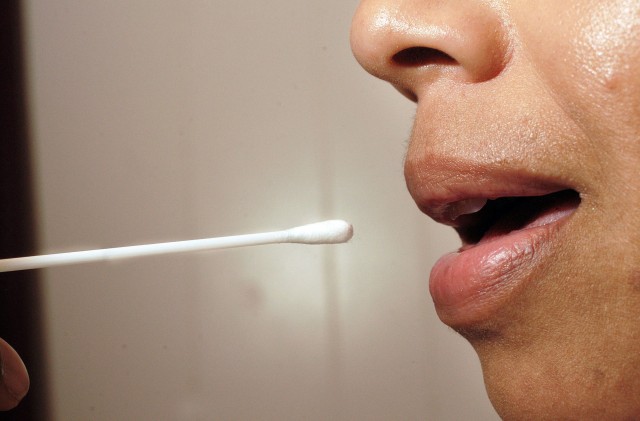Efforts to overturn California's DNA collection law may be trumped by the Supreme Court decision earlier this year, which upheld a similar Maryland law and likened collecting DNA samples to fingerprinting suspects booked into police custody. Maryland's law, however, permits collection only from those charged with a serious felony, and after a judge finds probable cause they committed the crime.
The Associated Press noted that "the 11 judges ... ranged the entire political spectrum of presidential appointees and no consensus emerged after an hour of oral arguments." The issue has been complicated by the Supreme Court decision, said the AP story:
The 9th Circuit appeared on the verge of striking down the law after a first round of oral arguments last year. But before the 9th Circuit could rule, the U.S. Supreme Court ruled 5-4 to uphold Maryland's similar — but narrower — law. The 9th Circuit ordered new legal arguments, demanding from the ACLU reasons why California's law differs enough from Maryland's to be struck down.
According to the AP, Judge Raymond Fisher said at one point today: "It seems the thrust of the (Supreme Court) majority opinion is that DNA, no matter how it comes into the possession of the government in terms of arrests, is an incredibly valuable tool."
The Mercury News reported that Chief Judge Alex Kozinski suggested there may be a middle ground, allowing the court to send the issue back to the lower courts to review in light of the Maryland ruling: "Among other issues, Kozinski noted that the ACLU's case is now too broad because of the Maryland decision and that a smaller group of people might be able to make viable claims that the DNA collection violated their privacy rights."
A Mercury News story that ran on Dec. 6 spoke to Hank Greely, a Stanford University law professor, about the issue:
While the 9th Circuit case raises federal legal questions, a similar challenge is unfolding in the California state courts, where the state Supreme Court has also ordered a further look at the issue in light of the U.S. Supreme Court's Maryland decision.
In both cases, the issue boils down to whether there is enough difference between the California and Maryland laws to skirt the U.S. Supreme Court's findings that DNA collection can be constitutional.
"The question is are there enough distinctions to make a difference," Greely said. "If I had to bet, I'd say the U.S. Supreme Court would say there aren't."
[contextly_auto_sidebar id="pUwRTu7dVC5y37ZmQjJ7hPFoWX0wB6N9"]
